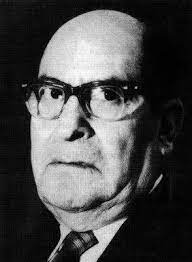Manuel Toribio Mejía Xesspe (April 16, 1896 - November 2, 1983) was a Peruvian archaeologist and student of Julio César Tello. He discovered the Nazca Lines in 1926 or 1927.
Toribio Mejía Xesspe | |
|---|---|
 | |
| Born | April 16, 1896 Toro District, Peru |
| Died | November 2, 1983 (aged 87) Lima, Peru |
| Alma mater | National University of San Marcos |
| Occupation(s) | Anthropologist and Archeologist |
Biography
editMejía Xesspe was born in Toro, a district of the La Unión province, Arequipa department.[1][2]
Reports differ on the specific year, but in either 1926[3] or 1927 Mejía Xesspe discovered locations of the Nazca Lines while hiking in the foothills of the surrounding area. He then discussed them at a conference in Lima in 1939.[4]
Mejía Xesspe died in Lima, due to a congenital disease of the spleen.[1]
See also
editReferences
edit- ^ a b Melgar Vasquez, Max Alejandro (June 2014). "EL LEGADO DE TORIBIO MEJÍA XESSPE" (PDF).
- ^ "▷ Conoce el gran legado de Toribio Mejía Xesspe". Cultura Paracas (in Spanish). Retrieved 2023-11-06.
- ^ "Why the Nasca lines are among Peru's greatest mysteries". History. 2010-11-08. Archived from the original on February 25, 2021. Retrieved 2023-11-09.
- ^ Mejía Xesspe, Toribio (1939). ""Acueductos y caminos antiguos de la hoya del Río Grande de Nazca" (Aqueducts and ancient roads of the Rio Grand valley in Nazca)". Actas y Trabajos Cientificos del 27 Congreso Internacional de Americanistas (Proceedings and scientific works of the 27th international congress of American anthropologists). 1: 559–569.